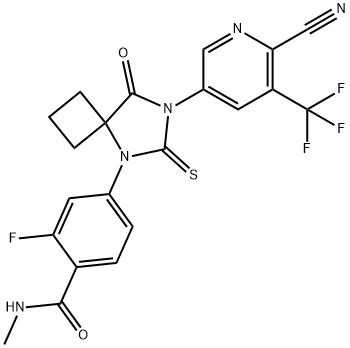SAFETY INFORMATION
| Signal word | Warning |
|---|---|
| Pictogram(s) |
 Exclamation Mark Irritant GHS07 |
| GHS Hazard Statements |
H302:Acute toxicity,oral |
| Precautionary Statement Codes |
P280:Wear protective gloves/protective clothing/eye protection/face protection. P305+P351+P338:IF IN EYES: Rinse cautiously with water for several minutes. Remove contact lenses, if present and easy to do. Continuerinsing. |
COMPUTED DESCRIPTORS
| Molecular Weight | 477.4 g/mol |
|---|---|
| XLogP3 | 3 |
| Hydrogen Bond Donor Count | 1 |
| Hydrogen Bond Acceptor Count | 9 |
| Rotatable Bond Count | 3 |
| Exact Mass | 477.08825856 g/mol |
| Monoisotopic Mass | 477.08825856 g/mol |
| Topological Polar Surface Area | 121 Ų |
| Heavy Atom Count | 33 |
| Formal Charge | 0 |
| Complexity | 886 |
| Isotope Atom Count | 0 |
| Defined Atom Stereocenter Count | 0 |
| Undefined Atom Stereocenter Count | 0 |
| Defined Bond Stereocenter Count | 0 |
| Undefined Bond Stereocenter Count | 0 |
| Covalently-Bonded Unit Count | 1 |
| Compound Is Canonicalized | Yes |
PRODUCT INTRODUCTION
description
Apalutamide is a potent androgen receptor (AR) antagonist that selectively binds to the ligand-binding domain of AR and blocks AR nuclear translocation or binding to androgen response elements. It has been used in trials studying the treatment of Prostate Cancer, Hepatic Impairment, Prostatic Neoplasms, Castration-Resistant Prostate Cancer, and Prostatic Neoplasms, Castration-Resistant, among others. Exerting an antitumor action, apalutamide blocking the effect of androgens that promote tumor growth. It targets the AR ligand-binding domain and prevents AR nuclear translocation, DNA binding, and transcription of AR gene targets in prostate tumors. In mice bearing human CRPC xenograft models, apalutamide treatment produced tumor regressions in a dose-dependent manner that was more effective than that of [DB01128] or [DB08899]. Unlike bicalutamide, apalutamide antagonized AR-mediated signaling in AR overexpressing human CRPC cell lines. Androgen-deprivation therapy, or hormone therapy, can be used as part of maintenance therapy for patients with non-metastatic prostate cancer. Although most patients achieve therapeutic responses at the initial hormone therapy, many patients progress to non-metastatic castration-resistant (resistance to hormone therapy) prostate cancer which is the second-most common cause of cancer-related deaths in American males. Castration-resistant prostate cancer is often incurable, which poses significant clinical challenges for patients. Approximately 10 to 20 % of prostate cancer cases are castration-resistant, and up to 16% of these patients show no evidence of cancer metastasis at the time of castration-resistant diagnosis. Higher prostate-specific antigen (PSA) and shorter PSA doubling time (PSA DT) are associated with a higher risk for metastases and death. In a phase-2 multicenter open-label study, 89% of patients with non-metastatic, castration-resistant prostate cancer had ≥50% PSA decline at week 12 of apalutamide treatment. In a randomized trial, the median metastasis-free survival for patients taking apalutamide was 40.5 months compared to 16.2 months for patients taking a placebo. Apalutamide displayed good tolerability and safety profile in clinical studies. Apalutamide was approved in February 2018 by the FDA as Erleada for the treatment of patients with non-metastatic prostate cancer that is resistant to treatment with hormone therapy (castration-resistant). It is available as oral tablets. Apalutamide is the first FDA-approved treatment for non-metastatic, castration-resistant prostate cancer.

